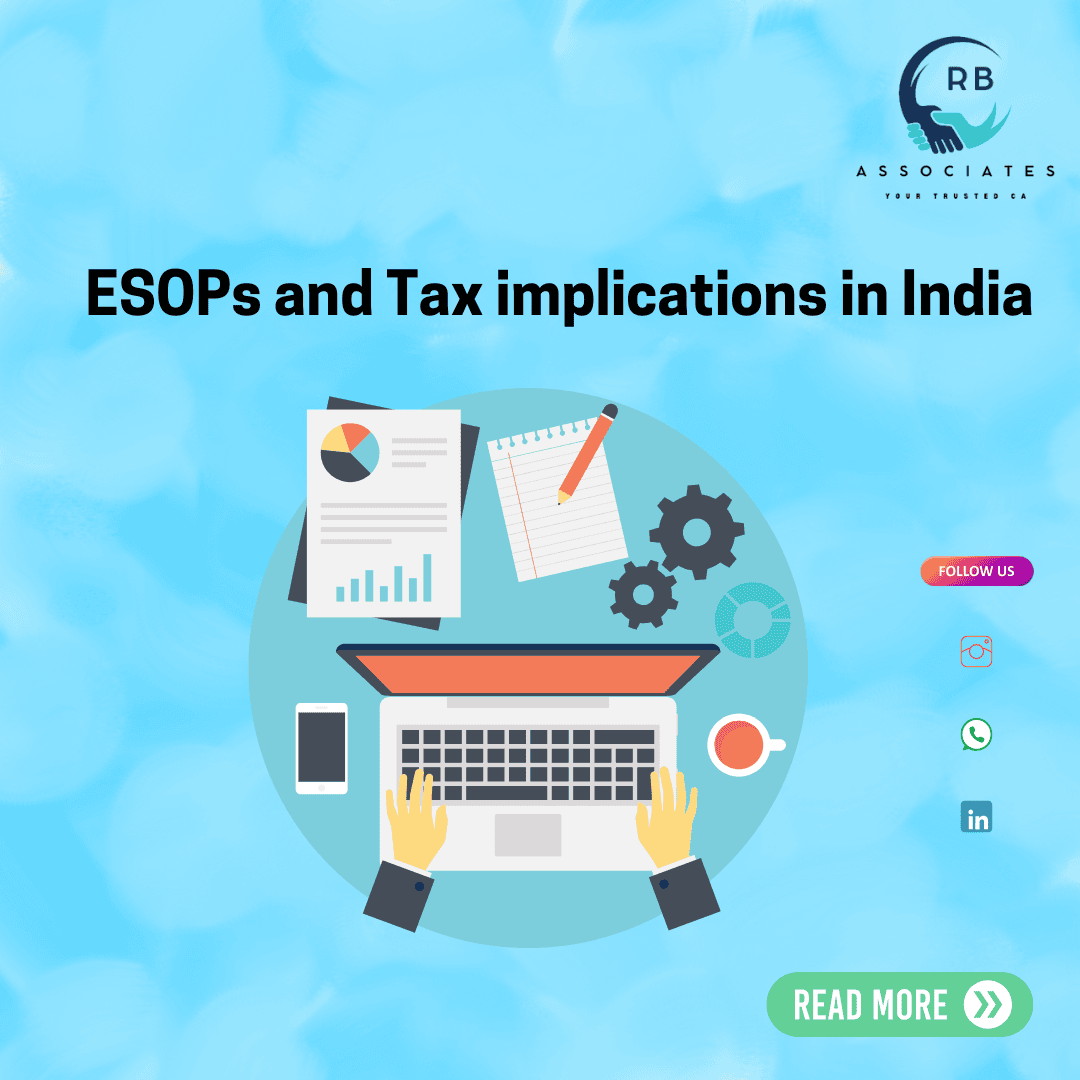Understanding ESOPs and Their Tax Implications for Employees in India
You Employee Stock Ownership Plans (ESOPs) are a popular way for companies to share ownership with their employees. They offer a unique blend of benefits, including potential financial gains and tax advantages. However, understanding of the taxation of ESOPs in India can be complex. This blog aims to demystify ESOPs and their tax implications for employees in India.

What is an ESOP?
An ESOP is a plan that provides employees with the opportunity to own shares in the company they work for. This can be a powerful incentive, aligning the interests of employees with those of the company and potentially leading to increased productivity and loyalty.
How Do ESOPs Work?
ESOPs are typically structured in the following stages:
- Grant: The company grants stock options to employees, which gives them the right to purchase shares at a future date and at a predetermined price.
- Vesting: Employees must wait for a certain period, known as the vesting period, before they can exercise their options. Vesting can be based on time, performance, or a combination of both.
- Exercise: Once the options are vested, employees can exercise them, meaning they can buy the shares at the predetermined price.
- Sale: After exercising the options, employees can choose to hold onto the shares or sell them.
Taxation of ESOPs in India
The taxation of ESOPs in India occurs at two key stages: at the time of exercise and at the time of sale.
- At the Time of Exercise:
- When an employee exercises their stock options, the difference between the fair market value (FMV) of the shares on the date of exercise and the exercise price is considered a perquisite and is taxable as salary income1.
- This amount is added to the employee’s income and taxed according to the applicable income tax slab rates2.
- At the Time of Sale:
- When the employee sells the shares, the gains are subject to capital gains tax.
- Short-Term Capital Gains (STCG): If the shares are sold within 24 months of exercise, the gains are considered short-term and taxed at the applicable income tax slab rates3.
- Long-Term Capital Gains (LTCG): If the shares are sold after 24 months, the gains are considered long-term and taxed at 10% without the benefit of indexation, provided the gains exceed INR 1 lakh in a financial year4.
Example
Let’s consider an example to illustrate the taxation:
- Grant Date: January 1, 2022
- Vesting Date: January 1, 2024
- Exercise Date: January 1, 2025
- Exercise Price: INR 100 per share
- FMV on Exercise Date: INR 300 per share
- Sale Date: January 1, 2026
- Sale Price: INR 500 per share
At Exercise:
- Perquisite Value: (300 - 100) = INR 200 per share
- This INR 200 per share is added to the employee’s salary income and taxed according to the income tax slab rates.
At Sale:
- Capital Gains: (500 - 300) = INR 200 per share
- Since the shares are held for more than 24 months, the gains are long-term and taxed at 10% without indexation.
Conclusion
ESOPs can be a valuable part of an employee’s compensation package, offering both financial benefits and a sense of ownership in the company. However, understanding the tax implications is crucial for maximizing these benefits. Employees should consider consulting with a tax advisor to navigate the complexities and optimize their financial planning.

